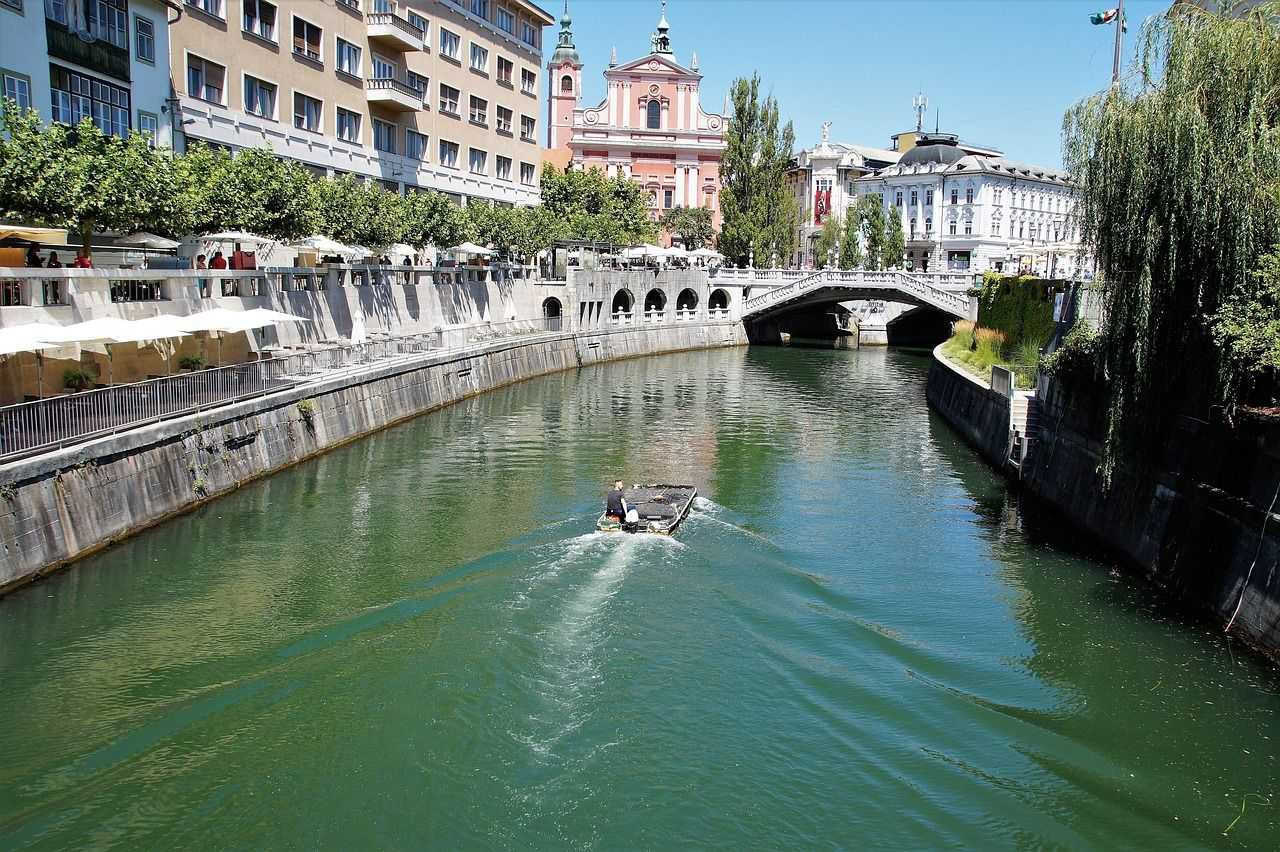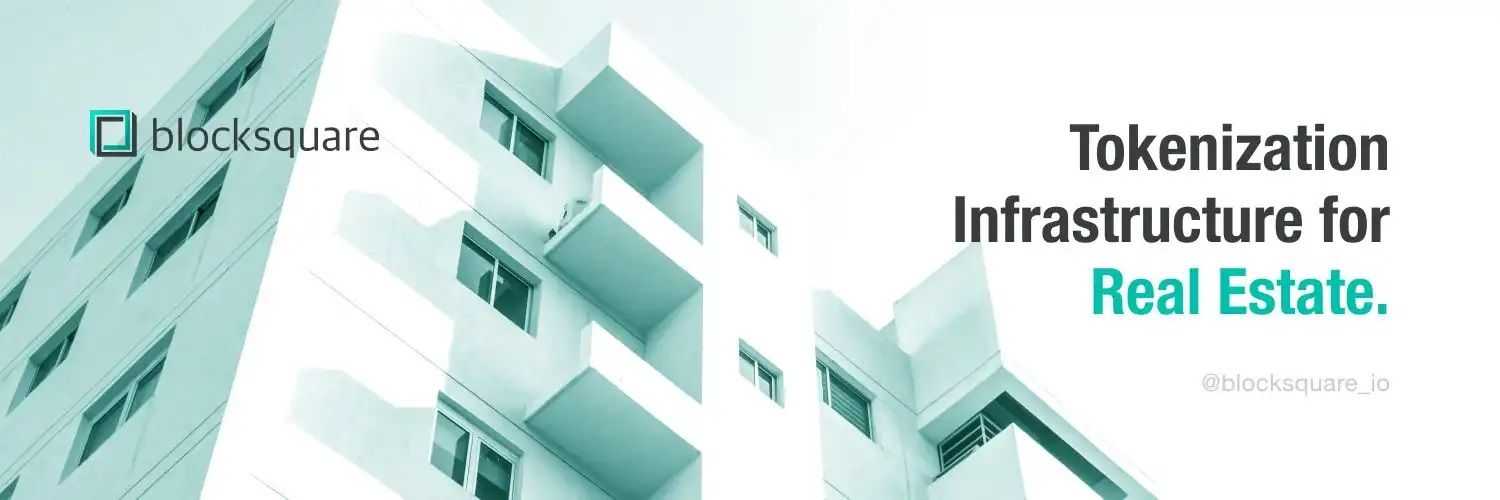Ljubljana Named World’s Most Crypto-Friendly City: Why It Matters for Blocksquare and the Future of Blockchain Real Estate
In a world racing to keep up with the pace of blockchain innovation, one small European capital has quietly taken the lead. Ljubljana — the capital of Slovenia and a hidden gem at the crossroads of Central Europe — has just been named the #1 crypto-friendly city in the world, according to the 2025 Crypto-Friendly Cities Index published by Multipolitan and featured in Cointelegraph.


This recognition isn’t just a feather in the cap for Slovenian policymakers and crypto enthusiasts. It’s a signal to the world: blockchain isn’t just a Silicon Valley experiment — it’s already reshaping cities, economies, and industries in places you might not expect.
And at the heart of Slovenia’s blockchain revolution is Blocksquare, a Ljubljana-based startup that’s transforming how the world thinks about real estate investment through real-world asset (RWA) tokenization.
Here’s why Ljubljana’s rise matters — and why Blocksquare could be the company to bring tokenized property into the global mainstream.
How Ljubljana Became the #1 Crypto City in the World
While major cities like Singapore, Dubai, and Zurich have long been considered hubs for digital finance and crypto startups, Ljubljana has quietly built a foundation that now puts it at the very top.
The Multipolitan index ranks cities based on several factors: regulatory clarity, crypto tax friendliness, infrastructure quality, and average crypto holdings per capita. Ljubljana outperformed cities around the globe by offering not just regulatory support but also a thriving ecosystem of users, developers, and investors.
Here’s what propelled Ljubljana to the top spot:
-
Regulatory clarity: Slovenia offers a well-defined framework for cryptocurrency businesses and investors. Unlike many nations where crypto laws remain vague or restrictive, Slovenia’s approach is transparent and practical — a key factor for startups and institutions alike.
-
Crypto tax advantages: Slovenia’s tax system is remarkably favorable for crypto holders. Individuals typically do not pay capital gains tax on profits from trading crypto unless it’s considered a business activity — making the country especially attractive to everyday investors.
-
High crypto adoption: According to data published in the index, Slovenians reportedly hold an average of $240,500 in digital assets per person — one of the highest averages globally.
-
Thriving digital economy: The country boasts excellent digital infrastructure, a tech-savvy population, and high GDP per capita, making it an ideal environment for digital innovation.
But statistics only tell part of the story. What really makes Ljubljana stand out is how blockchain technology is being used — not just in theory, but in real, meaningful applications.

Blocksquare: Slovenia’s Flagship for Real-World Blockchain Adoption
Among the most tangible examples of Ljubljana’s crypto leadership is Blocksquare, a pioneering company developing the infrastructure for tokenizing real estate assets.
Founded and based in Ljubljana, Blocksquare’s mission is simple but bold: make real estate investing more accessible, more liquid, and more transparent by moving it onto the blockchain. Their system allows real-world properties to be divided into digital tokens, giving investors fractional ownership, legal rights, and access to DeFi-powered financial tools.
This isn’t just a proof of concept. It’s already happening — and the results are catching global attention.
Real Estate Tokenization in Action: Student Housing in Ljubljana
One of the most high-profile projects powered by Blocksquare involved the tokenization of a student housing property in Ljubljana. Rather than selling the building to a single investor or managing it via a traditional real estate fund, Blocksquare’s platform enabled the property to be fractionalized into tokens.
Each token represents a share of ownership, entitling holders to a portion of rental income and potential capital appreciation. Investors could purchase these tokens directly, quickly, and with full transparency — a radically different experience from traditional real estate investing.
This project did more than showcase Blocksquare’s technology — it proved that tokenized real estate is no longer an idea. It’s operational. It’s live. And it’s legal.
Key highlights of the student housing tokenization:
-
Enabled fractional ownership with as little capital as a few hundred euros
-
Created increased liquidity in a market known for being static
-
Provided on-chain, verifiable ownership rights
-
Offered greater transparency and automation in investor relations
For real estate developers and investors around the world, this model offers a new way forward.
A Legal First: Integrating Blockchain with Slovenia’s Land Registry
In another groundbreaking milestone, Blocksquare achieved something no other project had done before: it legally linked tokenized real estate assets with the Slovenian land registry — making the ownership of a blockchain token not just a symbolic stake, but a legally enforceable title.
🔗 Read the full article on Blocksquare’s blog
This project involved a tokenized parking space — a small but symbolically powerful use case. By notarizing the transaction and recording the tokenized asset in Slovenia’s official land registry, Blocksquare created a legal precedent. This isn’t just innovation — it’s compliance meeting technology in the most practical way.
What does this mean?
-
Investors are protected by both blockchain technology and national law
-
Token ownership becomes indistinguishable from traditional ownership
-
The bridge between Web3 and legacy systems is no longer theoretical — it’s here
This “Real Estate Tokenization 2.0” model is now seen as a reference point for jurisdictions worldwide considering how to integrate blockchain into their property laws.
Building a Global Marketplace for Tokenized Real Estate
While many blockchain projects are focused on speculation, Blocksquare is building real-world infrastructure that enables independent property marketplaces to operate in cities around the world.
Each marketplace is powered by the Blocksquare protocol but operates independently — sourcing its own properties, managing local compliance, and engaging directly with investors.
This decentralized approach enables:
-
Greater scalability across legal jurisdictions
-
Local branding and specialization
-
Shared technology, security, and smart contract architecture
From Europe and MENA to APAC and the Americas, these marketplaces are opening access to property investment for a global community of investors.
And through Oceanpoint.fi, Blocksquare is also creating DeFi layers on top of these marketplaces — allowing token holders to access lending, yield generation, and other liquidity tools that were previously exclusive to large financial institutions.
Why Ljubljana’s Crypto Ecosystem Is the Perfect Launchpad
The success of Blocksquare — and others like it — can be directly linked to the environment that Ljubljana provides. Slovenia’s crypto-friendly stance gives entrepreneurs and investors the confidence to build, launch, and scale blockchain-powered ventures without the fear of regulatory whiplash.
Some of the ecosystem advantages include:
-
High crypto literacy among developers and investors
-
Legal clarity on what tokenized ownership entails
-
Supportive government institutions, increasingly open to blockchain pilots
-
A culture of experimentation and innovation
Small nations often get overlooked in global tech, but Slovenia shows how lean governments and educated populations can lead the charge — especially when the rules of the game are still being written.
The Future Is Here: Tokenized Real Estate for the World
As the global real estate market continues to face challenges — from affordability crises to stagnant liquidity and bloated transaction costs — the appeal of tokenization is only growing stronger.
And unlike other speculative Web3 sectors, tokenized real estate delivers something very concrete:
-
A real asset with real cash flow
-
A stable and inflation-resistant investment class
-
Technology that increases access rather than complexity
For Blocksquare, the mission goes beyond Slovenia. They’re building the infrastructure that can support a new, more democratic global real estate economy — one where anyone, anywhere, can invest in professionally managed, income-producing properties via a smartphone.
Conclusion: From a Small European Capital to a Global Blueprint
Ljubljana might be a small city by population, but it now leads the world in one of the most consequential trends of the decade: the integration of blockchain with real-world industries.
Blocksquare stands as a powerful case study of what’s possible when vision, policy, and technology align.
So if you’re asking what the future of real estate looks like, look no further than Slovenia — where student housing, parking lots, and commercial buildings are already trading as digital assets, legally recognized and globally accessible.
This isn’t just innovation. This is the new standard.
From Ljubljana to the world — the future of real estate is decentralized, tokenized, and accessible.

Download Oceanpoint Whitepaper here.